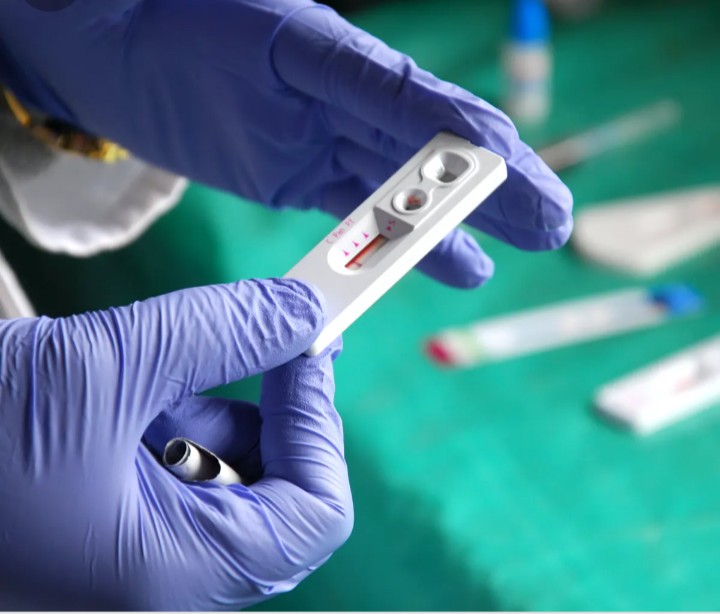|
Getting your Trinity Audio player ready…
|
By Joyce Mukucha
Following the discontinuation announcement of the HVTN 705 / HPX2008 trial which is also known as the Imbokodo study, scientists said they will remain positive about finding a solution to prevent HIV infection.
The study which started in 2017 and ended in June 2020 was aimed at testing the efficacy of vaccines to prevent Human Immuno Virus (HIV) infection in HIV-seronegative women residing in sub-Saharan Africa and failed to provide sufficient level of protection against HIV as desired.
Speaking during a recent virtual media cafe which was organised by the Health Communicators Forum of Zimbabwe (HCFZ) in partnership with AIDS Vaccine Advocacy Coalition (AVAC) and Internews, the Imbokodo Principal Researcher in Clinical Trails Research Centre at the University of Zimbabwe, Dr. Portia Hunidzarira said a clinical trial created a platform for scientists and researchers to apply the knowledge learned from the Imbokodo trial and continue with efforts to find a vaccine that will be protective against HIV.
The trial which involved 2,600 young women in sub-Saharan Africa, she said, saw the vaccine being injected to HIV-negative women caused no serious side effects to participants though it was only 25 percent effective in preventing HIV infection.
“Importantly, there was no harm done to the group of participants that received the Imbokodo vaccine. The Imbokodo study was found to have favourable safety profile,” she said.
Dr. Hunidzarira said even though the vaccine did not give enough protection, they were going to learn from this study what worked and what did not work so that improvements can be made in future trials.
“The result means the vaccine didn’t have enough protection to work in the way we hoped it would. We did not get the results we hoped for in the study, however, this does not mean the study was a failure because we can learn so much about how to do it differently the next time,” said Dr. Hunidzarira.
Further testing from the Imbokodo study, she said, was ongoing and when it is done, the research team will work to share that information with the public and other scientists.
She pointed out that a parallel trial will continue in the Americas and Europe, where vaccine compositions and HIV strains differ with the trial involving men engaging in physical relationships with other men and transgender individuals.
“While more details will be coming from Imbokodo, there is another study with a similar vaccine regimen. The Mosaico study is testing if this similar vaccine protects MSM and transgender people from HIV. The Mosaico study is being conducted in the Americas and Europe where different strains of HIV are circulating.”
Articulating how the outcome of the Imbokodo study can be compared to previous HIV vaccine studies, Dr. Hunidzarira added that it was not possible to compare the different vaccines that have been tested in different countries, where the type of HIV may be different and different people.
“For example MSM, like the Mosaico study where the route of transmission of the virus is through the rectum in heterosexual women, it is mostly through the vagina. Also, the number of people in a population can influence a study result as it affects how often people could be exposed to the virus.”
Explaining the factors that make HIV vaccine development challenging, she said unlike other viruses, human beings do not recover from HIV on their own, so no model of cure is available to learn from.m thus it can not be compared with Covid-19 where the infected person easily recover.
“When a person gets HIV, the virus immediately joins with the genetic material of the person infected with HIV. HIV can attack, hijack and evade the human defense system, in many different and effective ways than other viruses. HIV is continuously changing(mutating) resulting in different strains.”
Dr. William Kilembe, the Site Principal Investigator Center for Family Health Research in Zambia said trial results were analyzed two years after the first dose was given to the women, aged 18-35.
The study, he said, found that 63 placebo recipients and 51 vaccination recipients became infected with HIV, meaning that the efficacy rate was 25.2 percent.
Dr. Kilembe highlighted that all participants were offered comprehensive prevention methods.
“Preexposure prophylaxis medication (PrEP) was given to trial participants to help prevent HIV infection during the trial. Medical care and antiretroviral treatment were provided to women who acquired HIV infection, couple counselling (where applicable), condoms and contraception were also given to the participants,” he said.
Following that for the first time in months, a different science or vaccine story dominated the headlines, the meeting also brought into the discussion about some of the stories that came out after the announcement of the Imbokodo study results, and journalists were urged to craft credible headlines that help the audience understand issues better.
Ida Jooste from Internews said journalists should be more accurate when crafting headlines and when telling a story.
Jooste emphasised that instead of only wanting scoops when it comes to reporting about vaccine trials, Imbokodo in particular, the media should play a critical role in imparting knowledge to the people through accurate reporting.
A fellow from AVAC who participated said media is a powerful tool for communication, therefore, it has a lot of influence in changing people’s perceptions especially those who are still skeptical of vaccines which as result cause resistance and hesitancy.
